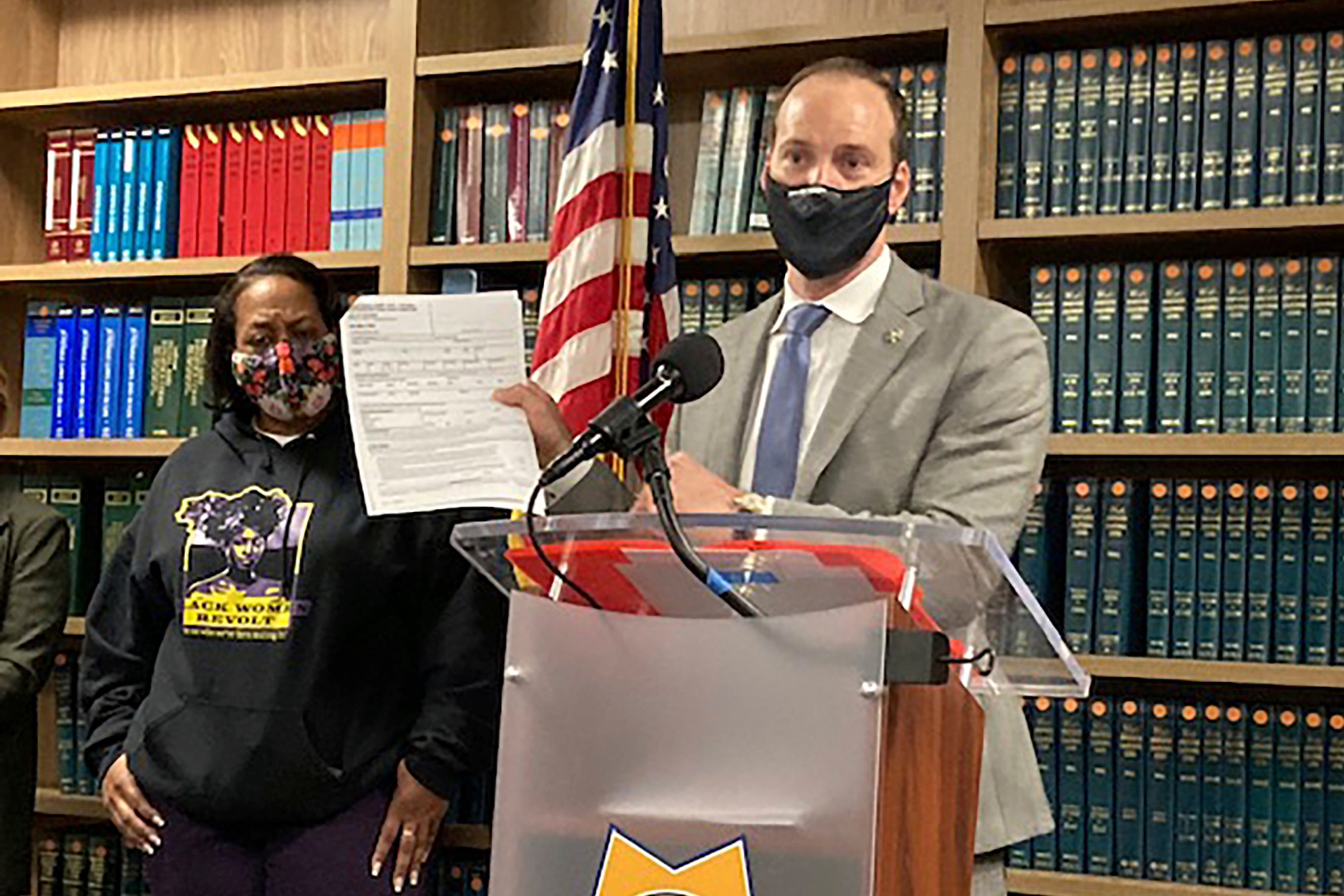Woman whose rape DNA led to her arrest sues San Francisco
A rape victim whose DNA from her sexual assault case was used by San Francisco police to arrest her in an unrelated property crime is suing the city

Your support helps us to tell the story
From reproductive rights to climate change to Big Tech, The Independent is on the ground when the story is developing. Whether it's investigating the financials of Elon Musk's pro-Trump PAC or producing our latest documentary, 'The A Word', which shines a light on the American women fighting for reproductive rights, we know how important it is to parse out the facts from the messaging.
At such a critical moment in US history, we need reporters on the ground. Your donation allows us to keep sending journalists to speak to both sides of the story.
The Independent is trusted by Americans across the entire political spectrum. And unlike many other quality news outlets, we choose not to lock Americans out of our reporting and analysis with paywalls. We believe quality journalism should be available to everyone, paid for by those who can afford it.
Your support makes all the difference.A rape victim whose DNA from her sexual assault case was used by San Francisco police to arrest her in an unrelated property crime on Monday filed a lawsuit against the city.
During a search of a San Francisco Police Department crime lab database, the woman's DNA was tied to a burglary in late 2021. Her DNA had been collected and stored in the system as part of a 2016 domestic violence and sexual assault case, then-District Attorney Chesa Boudin said in February in a shocking revelation that raised privacy concerns.
The revelation prompted a national outcry from advocates, law enforcement, legal experts and lawmakers. Advocates said the practice could affect victims’ willingness to come forward to law enforcement authorities.
Federal law already prohibits the inclusion of victims’ DNA in the national Combined DNA Index System. There is no corresponding law in California to prohibit local law enforcement databases from retaining victims’ profiles and searching them years later for entirely different purposes.
California lawmakers last month approved a bill that would prohibit using the DNA profiles collected by police from sexual assault survivors and other victims for any purpose other than aiding in identifying the perpetrator. Local law enforcement agencies would also be prohibited from retaining and then searching victim DNA to incriminate them in unrelated crimes under the legislation, which is pending before Gov. Gavin Newsom.
Boudin said the report was found among hundreds of pages of evidence against a woman who had been recently charged with a felony property crime. After learning the source of the DNA evidence, Boudin dropped the felony property crime charges against the woman.
The police department's crime lab stopped the practice shortly after receiving a complaint from the district attorney’s office and formally changed its operating procedure to prevent the misuse of DNA collected from sexual assault victims, Police Chief Bill Scott said.
Scott said at a police commission meeting in March that he had discovered 17 crime victim profiles, 11 of them from rape kits, that were matched as potential suspects using a crime victims database during unrelated investigations. Scott said he believes the only person arrested was the woman who filed the lawsuit Monday.
The woman filed the lawsuit under the alias of Jane Doe to protect her privacy, her attorney, Adante Pointer, said in a statement. The Associated Press generally does not name people who say they have been sexually assaulted unless they choose to be named.
California allows local law enforcement crime labs to operate their own forensic databases that are separate from federal and state databases. The law also lets municipal labs perform forensic analysis, including DNA profiling, and use those databases — without regulation by the state or others.